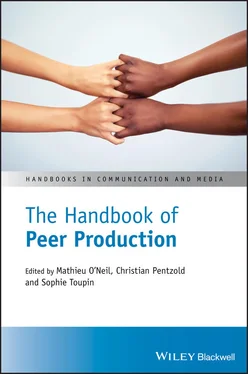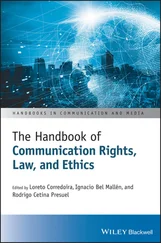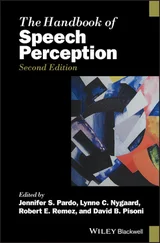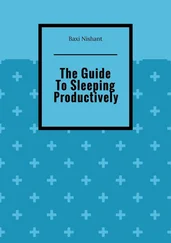Adrian Smithis Professor of Technology and Society at the Science Policy Research Unit at the University of Sussex, UK. He is involved in interdisciplinary research projects investigating the politics of technology and innovation for sustainable development. He has a particular interest in grassroots involvement in this politics, and questions of democracy. This has included studies of makerspaces in Europe, Latin America, and Asia.
Sebastian Spaethholds the Chair of Management and Digital Markets at the University of Hamburg, Germany. He studied Business and Engineering at the Karlsruhe Institute of Technology and graduated at the Institute of Technology at Linköping University, Sweden. He received his doctorate in Business Administration from the University of St. Gallen, Switzerland where, cooperating with Georg von Krogh, he examined open source software development projects. He conducted research on collaborative open innovation and collaborative business models as a postdoctoral fellow at ETH Zurich, Switzerland. In 2013, he founded the Chair of Management and Digital Markets at the University of Hamburg to focus on the challenges and opportunities arising from the digitalization of society for citizens and organization. He has published in the Strategic Management Journal , Management Science , Research Policy , Information Systems Research , and MIS Quarterly .
Michael Stevensonis Associate Professor of New Media and Digital Culture at the Media Studies Department, University of Amsterdam, the Netherlands. His research interests include a range of topics in Internet history, software studies, and digital culture. He is working on a book called Making Media New , about the historical development of social media and the broader new media field in the 1990s and 2000s. In 2019 he made Geeks in Cyberspace , a web documentary about a group of open source software enthusiasts who created the influential websites Slashdot, Everything2, and PerlMonks.
Olof Sundinis Professor in Information Studies at Lund University, Sweden. He holds a doctorate from the University of Gothenburg, Sweden (2003). His work primarily concerns the configuration of information in contemporary society, the construction of public knowledge in relation to trust, and information searching and use. He has investigated Wikipedia, as well as commercial encyclopedias, from a perspective of use and findability as well as in terms of how encyclopedic information is constructed. In 2019, he published the book Invisible Search and Online Search Engines: The Ubiquity of Search in Everyday Life (Routledge).
Abraham Taherivandstudied Business Informatics, Information Management and Engineering and Design Thinking. He is a multiple award‐winner at national and international business plan competitions, holds various patents, and has been a serial entrepreneur since 2008 in the tech, Internet, and consumer sector. He has worked as a strategy consultant in various projects for companies and organizations. Since 2012 he has worked for Wikimedia Deutschland. He is the co‐founder of the first worldwide free structured knowledge database Wikidata and was awarded the Open Data Award by Tim Berners‐Lee and his teams. Since December 2016, Abraham Taherivand has been the Managing Director of Wikimedia Deutschland e.V.
Nathaniel Tkaczis a reader in digital media and culture and Deputy Director of the Centre for Interdisciplinary Methodologies at the University of Warwick, UK. He has written widely and critically on the topics of peer production, currency, money, and software culture. In 2012, he co‐founded the MoneyLab network in Europe with Geert Lovink and is co‐editor of the first MoneyLab Reader (2015). He has edited and authored a number of other monographs, including Wikipedia and the Politics of Openness (2015).
Sophie Toupinis a Fonds de recherche du Québec ‐ Société et culture (FRQSC) postdoctoral fellow at the University of Amsterdam where she explores the linkages between feminism, data and infrastructure. She completed her PhD in the Department of Art History and Communication Studies at McGill University, Montreal, Quebec, Canada. Her doctoral research examined the relationship between technology and anti‐colonialism during the South African anti‐apartheid struggle. Her work has been published in New Media and Society, Feminist Media Studies, Canadian Journal of Communication, Ada: A Journal of Gender, New Media, and Technology, and Journal of Peer Production, among others.
Peter Troxleris a research professor at Rotterdam University of Applied Sciences, the Netherlands. He studies how emerging ways of designing and manufacturing by “fabbers” and “makers,” enabled by readily available direct digital manufacturing technologies, challenge and influence incumbent practices in the creative and manufacturing industries. His research interests are the intersections and interdependencies of people, technology, business, society, and the environment. He also investigates how new paradigms of cooperation and business models are developed based on network patterns, self‐organization, lateral governance, and open source principles. He holds a PhD (1999) in Technology, Management and Economics and an MSc (1993) in Industrial Engineering, both from ETH Zurich. He has worked internationally in the energy industry, as a consultant to private and public sector enterprises, as a researcher and research manager in organizational psychology and artificial intelligence, and as a director and producer in various artistic projects in music, theater, literature, and social arts.
Pablo Velasco Gonzálezis an assistant professor in the Department of Digital Design and Information Studies at the University of Aarhus, Denmark, where he co‐directs the Center for the Study of Technological, Emerging, and Ethical Methods. His work has focused on digital culture and politics of technical devices, in particular blockchain technology and cryptocurrencies. He has collaborated on these and other topics in two Moneylab Readers (2015, 2018), the Metaphilosophy and APRA journals, and several book chapters. More information about his work can be found at pablov.me
Stefano Zacchiroliis Associate Professor of Computer Science at the University of Paris Diderot, France, and is currently on leave at Inria. His research interests span formal methods, software preservation, and free/open source software engineering. He is co‐founder and current CTO of the Software Heritage project. He has been an official member of the Debian Project since 2001, and was elected to serve as Debian Project Leader for three consecutive terms from 2010 to 2013. He is a former Board Director of the Open Source Initiative (OSI) and recipient of the 2015 O'Reilly Open Source Award.
The Handbook of Peer Production has emerged from a community of researchers, practitioners, and activists who share a belief in the virtue of open collaboration. We are grateful for this community’s existence and hope we have been equal to the task of documenting its work. Academic books are always collective endeavors; we are immensely thankful to those who have helped us in bringing this project forward.
The Handbook chapters were peer reviewed by the three editors. In addition, Chapter 1 (“The Duality of Peer Production”), Chapter 29 (“What’s Next?”), and Chapter 30 (“Be Your Own Peer!”) which we co‐wrote, were reviewed by Sébastien Broca. His insightful comments played a substantial part in making our arguments more coherent, so we express our heartfelt thanks for his contribution.
Читать дальше


![О Генри - Справочник Гименея [The Handbook of Hymen]](/books/407356/o-genri-spravochnik-gimeneya-the-handbook-of-hymen-thumb.webp)









